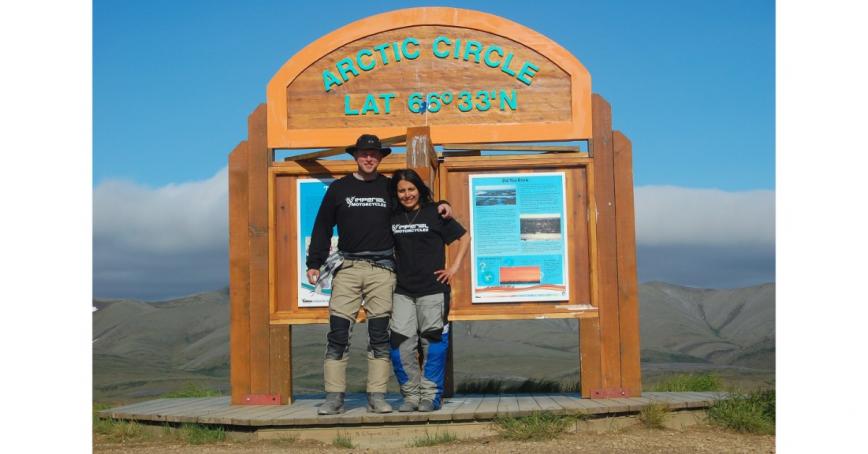“They told me I would never be academically competitive”
Topics
Featured
Share online

As he regained consciousness, 19-year old infantryman Brian Mendoza Dominguez felt only one thing — curiosity.
“I couldn’t see but I could hear people screaming — screaming in pain, screaming in anger. And I was just curious about what was happening. I didn’t realize we were injured,” he recalls.
In fact, Dominguez had been so badly injured in an armoured vehicle crash that others on scene for the live-fire training at Canadian Forces Base Wainwright assumed the worst.
Dominguez survived, but the physical damage he’d endured left him unable to walk or even remember his own name — a problem that would dog him for years. Slowly, he rebuilt his physical strength but, after an array of tests in 1992, doctors told him his brain was irreversibly damaged.
“I was diagnosed with post-traumatic concussion syndrome,” Dominguez says. “They told me I was smart but, because of my injury, I would never be academically competitive.”
That pronouncement would ring in Dominguez’s ears for the rest of his life and undermine his confidence. The psychological impact was “the worst injury of all.”
At the same time, he took it as a challenge and, fuelled by “curiosity and stubbornness,” redoubled his efforts to educate himself, even when he felt the education he wanted was beyond his reach.
Ironically, Dominguez had joined the armed forces to earn enough money to put himself through college. Instead, there he was in the midst of an economic recession with a broken body, no credentials and not much support.
“I found work, I did jobs, but younger people were always being promoted over me because they had degrees,” he says.
It was discouraging, but Dominguez never lost his passion for learning.
Working by day, he spent his evenings taking courses in subjects such as strategic resource management and principles of quality. A living example of neuroplasticity — the brain’s ability to essentially re-wire itself — he found ways around his lingering issues with memory.
“I did this for a long time, and passed all my courses, but I didn’t think they added up to any particular credential,” he says.
Then he met his wife, Deyanira, who was finishing her degree in chemical engineering at UBC. They shared a love of motorcycles, and a love of learning. So they started taking courses together. And Deya started doing some stealth work behind the scenes.
“I knew Dominguez was brilliant,” she says. “That’s a big part of what attracted me to him. So I couldn’t understand why he wasn’t completing a degree.”
Without telling him, she looked at all the courses he’d completed and realized he had enough to earn a certificate and a professional designation. Then, in 2010, she pointed him to Royal Roads, believing he could benefit from its flexible admission policy.
“I didn’t think for a second that I would get in,” Dominguez recalls. “But the head of the program was so supportive. [Bernard Schissel] worked with me to polish my proposal until it was acceptable.” Dominguez reflects for a second before adding, “He cared. It was not what I’d expected.”
Dominguez received his Master of Arts in Leadership in 2015, followed by a Doctor in Social Sciences degree in July, 2020 — achievements he attributes in part to the “brilliant and supportive” people he worked with at Royal Roads.
“Our group was small enough to feel like a family. The physical location was amazing. And the blend of virtual and in-person learning was a perfect fit for me.”
Still, the dire prediction from his past continued to haunt him.
“I honestly didn’t feel confident I could succeed until the day I graduated.” He smiles and looks at Deyanira. “Then I had to accept it.”